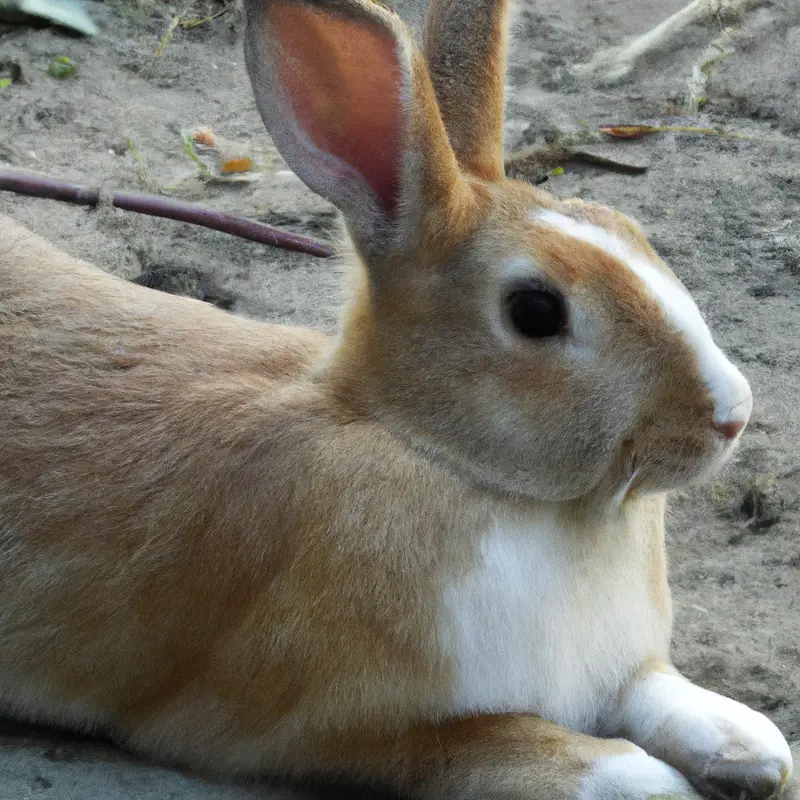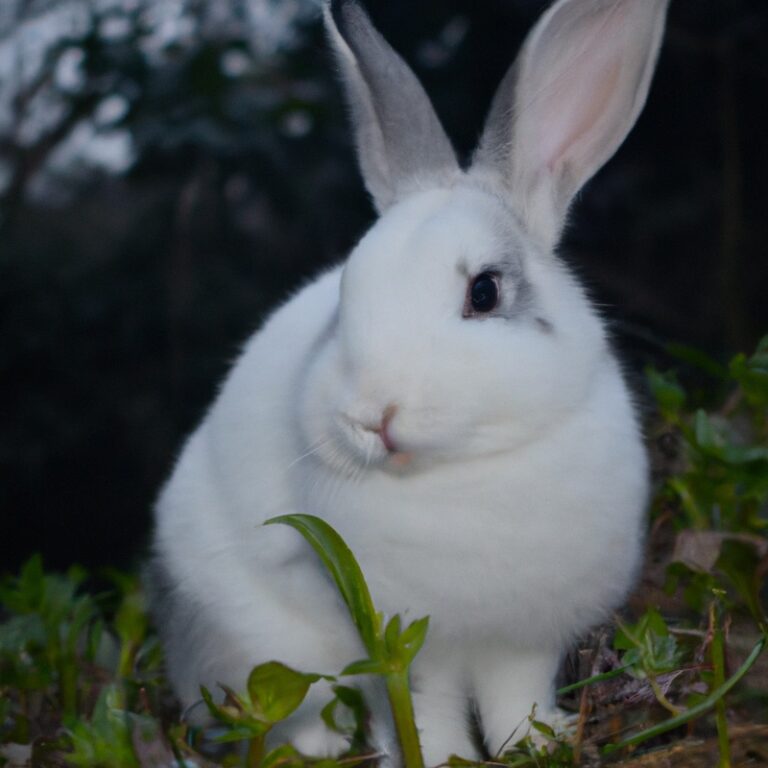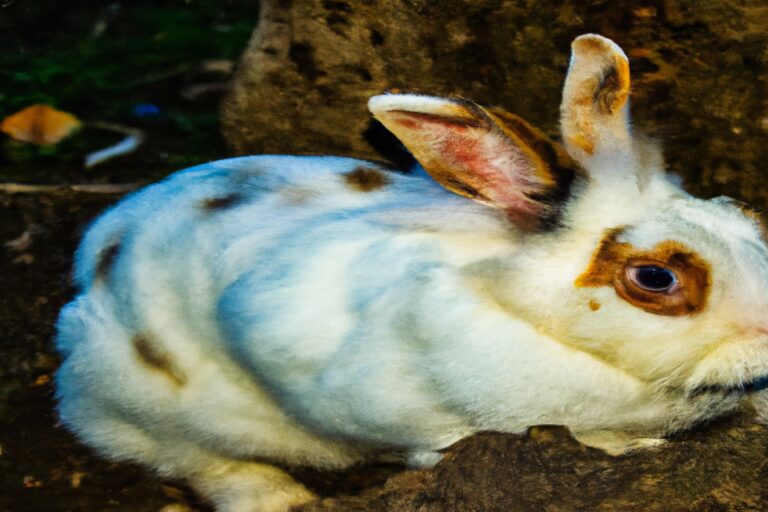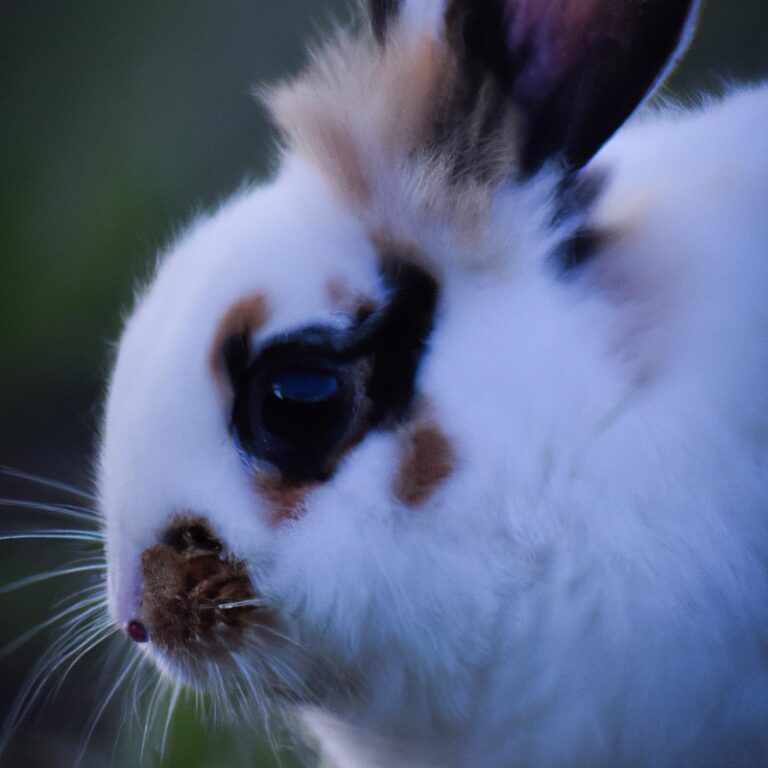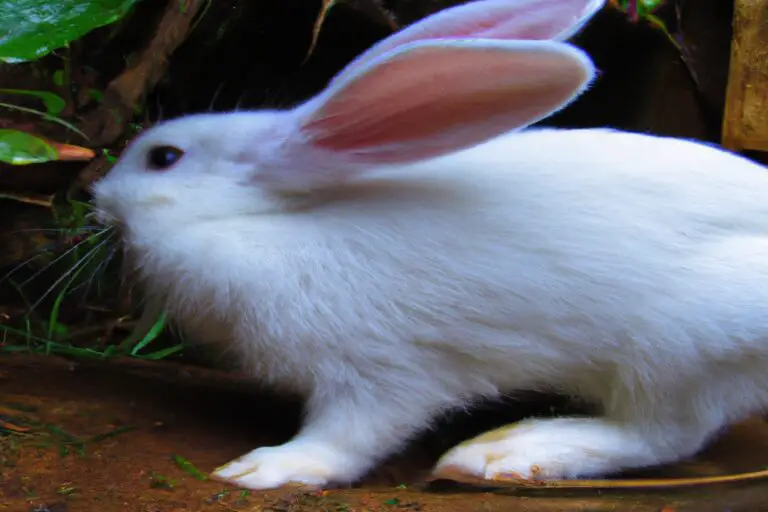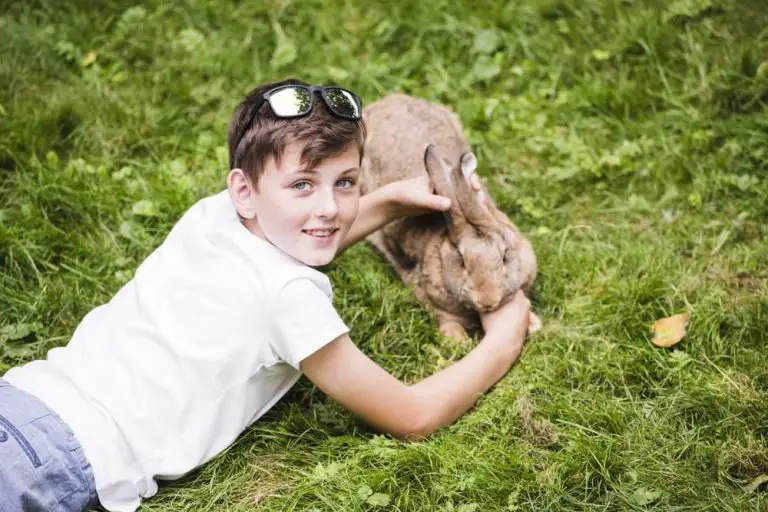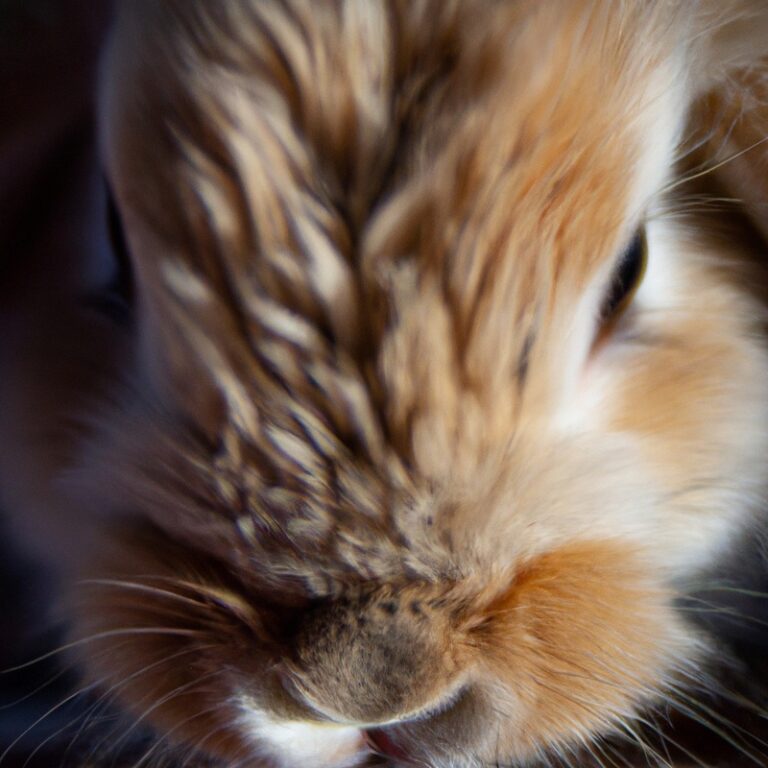How Long Do Mini Lop Rabbits Live? Discover Their Remarkable Lifespan!
Key Takeaways:
- Mini lop rabbits generally have a lifespan of 5 to 10 years.
- Well-cared-for mini lop rabbits can live beyond 10 years.
- Regular veterinary check-ups can help increase the lifespan of mini lop rabbits.
- Providing a balanced diet and a safe environment can contribute to the longevity of mini lop rabbits.
Do you have a soft spot for adorable, floppy-eared creatures?
Well, look no further because today we’re diving into the world of mini lop rabbits! If you’re considering welcoming one of these pint-sized bundles of joy into your home, you might be wondering, just how long do they live?
In this article, we’ll explore the factors that can affect the lifespan of mini lop rabbits, provide you with tips to extend their years, and discuss common health issues to watch out for.
Get ready to hop into the fascinating world of mini lop rabbits and discover how to keep them happy and healthy for as long as possible!
| Mini Lop Rabbits | Lifespan |
|---|---|
| Wild Mini Lop Rabbits | 2-3 years |
| Pet Mini Lop Rabbits | 8-12 years |
Factors That Affect the Lifespan of Mini Lop Rabbits
Various factors can influence the lifespan of Mini Lop rabbits, including genetics, diet, exercise, environment, and veterinary care.
Genetics and Breed Standards
Genetics play a significant role in determining the lifespan of Mini Lop rabbits. Breeding rabbits with good genetics can result in healthier, longer-lived offspring.
Breed standards also contribute to the longevity of Mini Lop rabbits, as they outline the desired physical characteristics and overall health of the breed.
It’s essential to choose reputable breeders who prioritize genetics and adhere to breed standards to ensure the health and lifespan of your Mini Lop rabbit.
Diet and Nutrition
Diet and nutrition play a vital role in the lifespan of mini lop rabbits. Here are some key points to consider for their optimal health:
- Hay: Provide unlimited access to fresh timothy hay, as it aids in digestion and wears down their teeth.
- Fresh Vegetables: Offer a variety of leafy greens like romaine lettuce, spinach, and herbs such as parsley. Introduce new vegetables gradually to prevent digestive upset.
- Pellets: High-quality, specifically formulated rabbit pellets should be a staple in their diet. Ensure the pellets are fresh and free from any molds.
- Limited Treats: While treats are enjoyable for rabbits, overfeeding can lead to obesity and other health issues. Limit treats to small amounts of fruits like apple or carrot slices.
- Water: Ensure your mini lop always has access to fresh, clean water. Regularly check and refill their water bowl or bottle.
Remember to consult with a veterinarian for personalized dietary recommendations and keep an eye on your rabbit’s weight to ensure they maintain a healthy body condition.
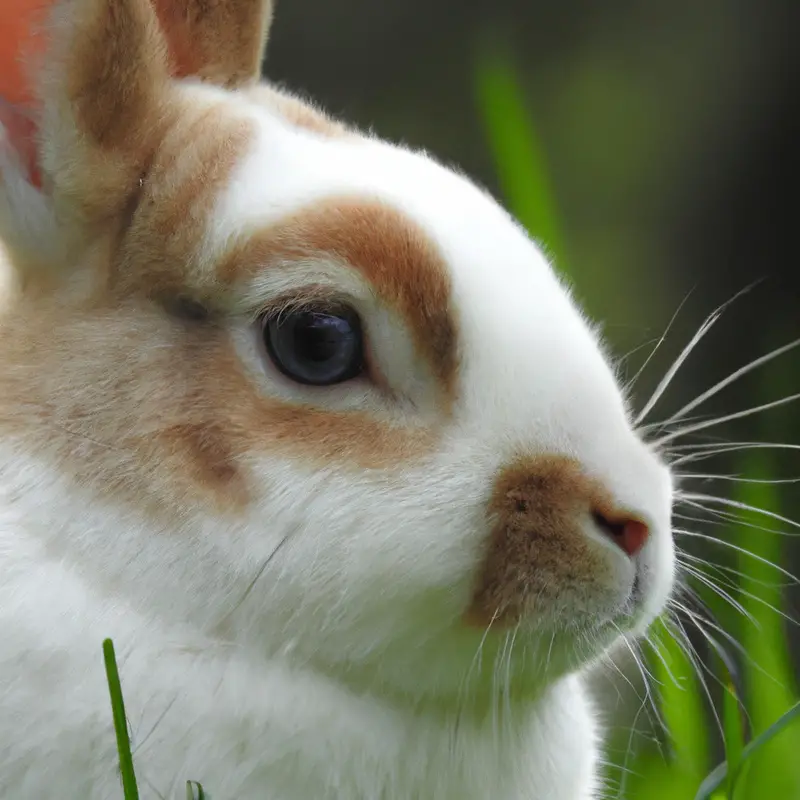
Exercise and Activity
Exercise and activity are important for the overall health and well-being of mini lop rabbits. Regular exercise helps them maintain a healthy weight, prevent obesity, and improve muscle tone.
It also provides mental stimulation and prevents boredom.
Some simple ways to encourage exercise and activity include providing a safe space for them to run and hop, placing toys and tunnels in their environment, and engaging them in interactive play. Remember, a happy and active bunny is a healthy bunny!
Environmental Factors
Environmental factors play a significant role in determining the lifespan of mini lop rabbits. Here are some key factors to consider:
- Housing: Providing a clean and spacious living environment is essential. Make sure their hutch or cage is well-ventilated, free from drafts, and protected from extreme temperatures.
- Diet: A balanced diet is crucial for their overall health and longevity. Offer a variety of fresh vegetables, high-quality hay, and rabbit pellets. Avoid foods that may be harmful, such as chocolate or avocado.
- Exercise: Regular exercise is important for mini lop rabbits to stay active and maintain a healthy weight. Provide them with a safe and secure area to explore and hop around.
- Stress: Minimize stressors in their environment, as stress can negatively impact their lifespan. Ensure they have a quiet and calm space, away from loud noises or other pets that may bother them.
- Veterinary Care: Regular check-ups with a knowledgeable veterinarian can help detect any health issues early on. Vaccinations, parasite prevention, and dental care are all important aspects of their well-being.
Remember, each rabbit is unique, and genetics also play a role in their lifespan. By considering these environmental factors and providing proper care, you can help maximize the lifespan of your mini lop rabbit.
Veterinary Care and Health Issues
Veterinary care is essential for maintaining the health and well-being of your mini lop rabbit.
Regular check-ups with a rabbit-savvy veterinarian can help identify any potential health issues early on.
Common health problems in mini lop rabbits include dental issues, gastrointestinal stasis, and respiratory infections.
Providing a balanced diet, plenty of exercise, and a clean environment can help prevent some health issues.
It’s also important to keep an eye out for signs of illness, such as changes in appetite, behavior, or appearance, and seek veterinary care immediately if needed.
Average Lifespan of Mini Lop Rabbits
Mini Lop rabbits have an average lifespan of around 7 to 10 years.
Lifespan Range
The lifespan range of Mini Lop rabbits typically falls between 7 to 12 years.
However, it’s important to note that individual rabbits may vary and some may live longer or shorter lives.
Taking good care of your Mini Lop by providing a balanced diet, regular veterinary check-ups, and a safe and comfortable living environment can help them live a healthy and fulfilling life.
Spending quality time with your bunny and providing mental and physical stimulation can also contribute to their overall well-being and potentially increase their lifespan.
Factors Affecting Lifespan Variations
There are several factors that can affect the lifespan of mini lop rabbits. Here are a few key factors to keep in mind:
- Genetics: Genetics play a significant role in a rabbit’s lifespan. Some rabbits may inherit certain health conditions or susceptibilities that can impact their longevity.
- Diet and exercise: Providing a balanced diet and regular exercise can help promote a healthy weight and overall well-being, which can contribute to a longer lifespan.
- Veterinary care: Regular check-ups with a knowledgeable veterinarian are essential for detecting and preventing potential health issues. Vaccinations, parasite control, and dental care are also crucial aspects of rabbit healthcare.
- Living environment: Creating a safe and stress-free living environment is important for rabbits. Providing a spacious and clean habitat, protection from extreme temperatures, and ample opportunities for mental and physical stimulation are factors that can contribute to a longer lifespan.
By being mindful of these factors and providing your mini lop rabbit with proper care and attention, you can help ensure they live a long and happy life.
Tips for Extending the Lifespan of Mini Lop Rabbits
To extend the lifespan of your Mini Lop rabbits, focus on a balanced diet, a safe and enriching environment, regular veterinary check-ups, exercise, mental stimulation, and preventing overbreeding.
Providing a Balanced Diet
To provide a balanced diet for your Mini Lop rabbit, it’s important to consider their nutritional needs.
Focus on the following:
- Hay: Offer unlimited fresh hay, such as timothy or orchard grass, to aid digestion and wear down their teeth.
- Fresh Vegetables: Include a variety of fresh veggies like leafy greens (e.g., romaine lettuce, kale, bell peppers, and carrots to provide vitamins and minerals.
- Pellets: Choose high-quality rabbit pellets that are made specifically for dwarf or small breed rabbits. Feed in moderation to prevent overeating.
- Limited Fruit: Offer small amounts of safe fruits as occasional treats. Examples include apples, strawberries, and bananas.
- Fresh Water: Ensure a constant supply of clean, fresh water is available at all times.
Remember, consult with a veterinarian to determine the specific dietary needs of your Mini Lop rabbit and adjust their diet accordingly.
Creating a Safe and Enriching Environment
Creating a safe and enriching environment for your mini lop rabbit is essential for their well-being. Here are some tips to help you achieve this:
- Provide a spacious and secure living space for your rabbit. This can be a large indoor cage or a dedicated outdoor hutch that is predator-proof.
- Make sure your rabbit has plenty of opportunities for exercise. Encourage daily playtime outside the cage and provide toys and tunnels for them to explore and stay active.
- Ensure their living area is free from potential hazards. Remove any toxic plants, secure electrical cords, and keep dangerous household items out of reach.
- Offer a balanced and nutritious diet to keep your rabbit healthy. Consult with a veterinarian to determine the best diet for your specific rabbit.
- Create a comfortable resting area with soft bedding material and a cozy hideout for your rabbit to retreat to when they need some downtime.
- Allow for mental stimulation by providing a variety of toys, chew blocks, and puzzle feeders. This can help prevent boredom and encourage natural behaviors.
- Maintain a consistent and gentle routine with your rabbit to help them feel secure and comfortable in their environment.
Regular Veterinary Check-ups
Regular veterinary check-ups are essential for your mini lop rabbit’s overall health and longevity.
During these visits, the vet will examine your rabbit, check for any signs of illness or injury, and provide necessary vaccinations.
They will also be able to offer advice on proper nutrition, grooming, and any behavioral concerns you may have.
By scheduling regular check-ups, you can catch any potential health issues early and ensure that your rabbit receives the best care possible.
Exercise and Mental Stimulation
Exercise and mental stimulation are essential for the well-being of mini lop rabbits.
They need regular opportunities to run, jump, and explore to burn off excess energy and prevent obesity.
Provide them with a safe and spacious area to exercise and consider supervised outdoor playtime.
Additionally, mental stimulation is crucial to prevent boredom and promote mental health.
Offer puzzle toys, hiding spots, and interactive playtime to keep them mentally engaged and happy.
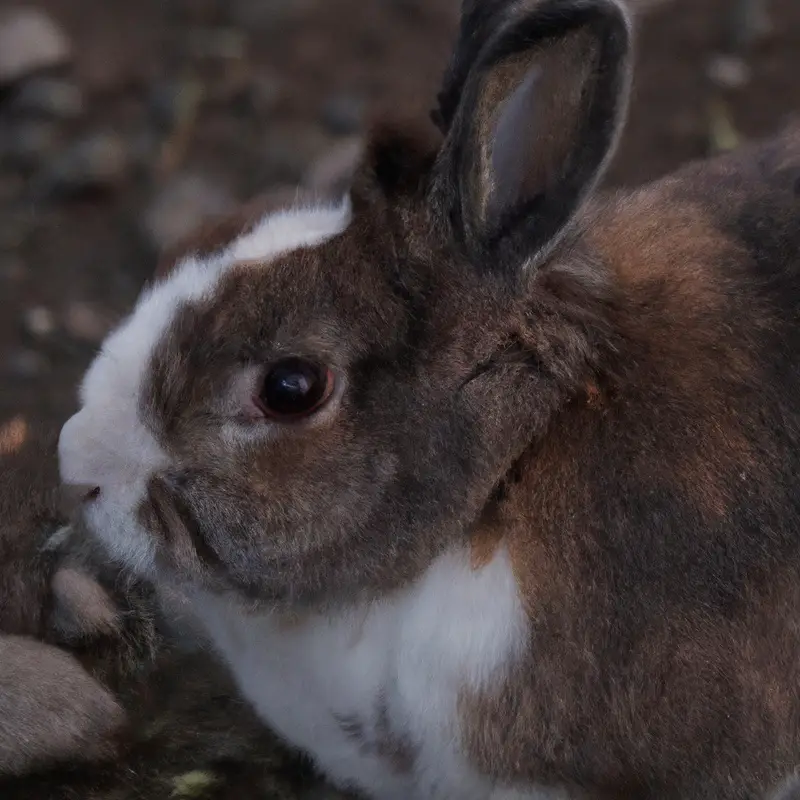
Preventing Overbreeding
To prevent overbreeding in mini lop rabbits, it is essential to spay or neuter them.
This helps control their reproduction and eliminates the risk of accidental pregnancies.
Additionally, it is important to keep male and female rabbits separated unless intentional breeding is desired.
Regular check-ups with a veterinarian can also ensure proper reproductive health.
Monitoring breeding practices and being mindful of rabbit population will help in preventing overbreeding.
Common Health Issues in Mini Lop Rabbits
Common Health Issues in Mini Lop Rabbits include dental problems, obesity and weight-related conditions, gastrointestinal issues, ear infections, and eye problems.
Dental Problems
Dental problems can be common in mini lop rabbits. One issue is overgrown teeth, which can lead to difficulty eating and discomfort.
Regular dental checks from a veterinarian are essential to catch and treat these problems early.
Providing your rabbit with plenty of hay and chew toys can also help keep their teeth healthy. Another dental issue is tooth spurs, which are sharp edges that can irritate the mouth.
Your vet can trim these spurs to prevent further damage.
Obesity and Weight-related Conditions
Obesity and weight-related conditions can pose serious health risks for mini lop rabbits.
Excessive weight can put strain on their joints and organs, leading to issues like arthritis, heart disease, and diabetes.
It’s important to monitor your rabbit’s weight and ensure they have a balanced diet and regular exercise.
Avoid feeding them excessive amounts of high-calorie treats and provide plenty of opportunities for them to move around and stay active.
Regular veterinary check-ups are also crucial in detecting and managing any weight-related concerns.
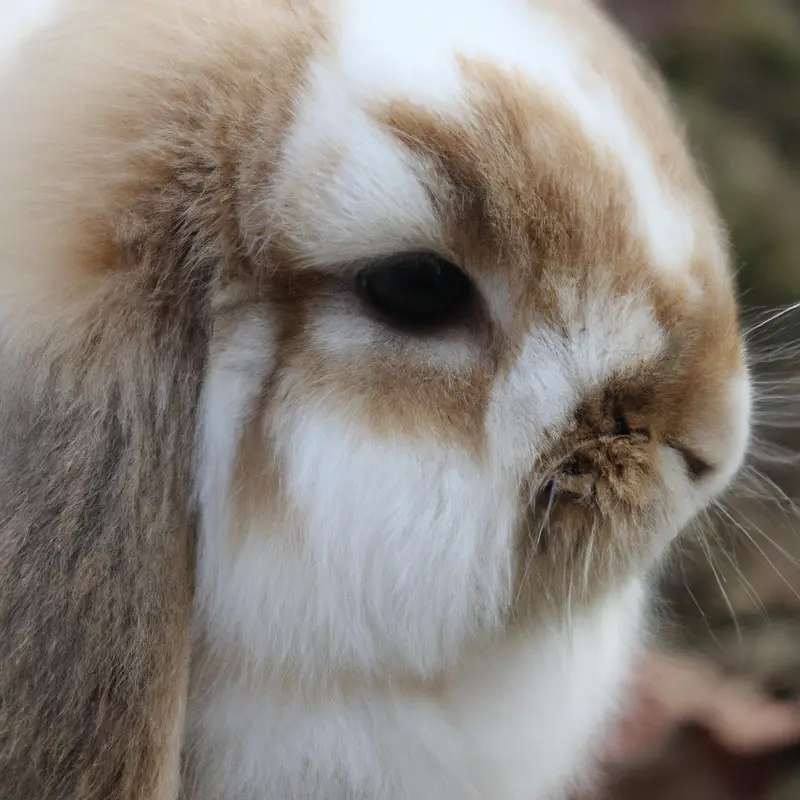
Gastrointestinal Issues
Gastrointestinal issues can be a common problem in mini lop rabbits. These issues can range from mild upset stomachs to more severe conditions like bloat or GI stasis.
Symptoms to watch out for include loss of appetite, bloating, diarrhea, or constipation.
It is important to monitor your rabbit’s diet, provide enough hay, and ensure they have access to fresh water. Regular exercise can also help keep their digestive system healthy.
If you notice any concerning symptoms, it’s best to consult a veterinarian as soon as possible.
Ear Infections
Ear infections can be a common health issue in mini lop rabbits. They are often caused by bacteria, parasites, or foreign objects in the ears.
Symptoms may include head shaking, scratching, and discharge.
If you notice any signs of an ear infection, it’s important to take your rabbit to a veterinarian for a proper diagnosis and treatment. Treatment may involve cleaning the ears, administering medication, and addressing any underlying issues.
Regular ear checks and cleaning can help prevent infections.
Eye Problems
Eye problems can occasionally affect mini lop rabbits. These issues may include conjunctivitis, corneal ulcers, and cataracts.
If you notice redness, discharge, or cloudiness in your rabbit’s eyes, it’s important to consult a veterinarian.
They can provide appropriate treatment to alleviate discomfort and prevent further complications. Regular monitoring of your rabbit’s eye health and maintaining good hygiene can help prevent eye problems.
If you have any concerns, reach out to your vet to ensure your pet’s eyes stay healthy.
Recognizing Signs of Aging in Mini Lop Rabbits
As Mini Lop rabbits age, you can recognize signs by observing changes in their physical appearance, decreased activity levels, behavioral changes, and increased vulnerability to health issues.
Changes in Physical Appearance
As rabbits age, there are noticeable changes in their physical appearance. The fur may become duller or grayer, and sometimes thinning or bald patches may appear.
Their eyes may also become cloudy or hazy, and the skin may become looser or develop wrinkles.
Additionally, older rabbits may experience a decrease in muscle tone, resulting in a more frail or sagging appearance. It’s important to understand these changes and provide proper care to ensure the well-being of your aging mini lop rabbit.
Decreased Activity Levels
As rabbits age, it’s common to notice a decrease in their activity levels.
This can be seen through reduced hopping, less interest in exploration, and decreased playfulness.
You may also observe them spending more time resting or sleeping.
It’s important to keep an eye on these changes, as they could be a sign of aging or potential health issues.
Providing a comfortable and safe environment for your mini lop rabbit is essential, offering ample space to move around freely, but also providing cozy areas for them to rest and relax.
Make sure to consult with a veterinarian if you have any concerns about your rabbit’s decreased activity levels.
Behavioral Changes
As mini lop rabbits age, you may notice some behavioral changes. These changes can vary from rabbit to rabbit, but some common signs of aging include decreased activity levels, less interest in play or exploration, changes in appetite, and increased sleep.
Older rabbits may also become less social or more irritable.
It’s important to remember that these changes are normal as rabbits age and may require adjustments in their care and attention.
Increased Health Vulnerabilities
As rabbits age, they become more vulnerable to certain health issues. Here are some of the increased health vulnerabilities that you should be aware of:
- Dental Problems: Older rabbits may develop dental issues such as overgrown teeth or abscesses, which can cause pain and difficulty eating.
- Joint and Mobility Issues: Arthritis is common in older rabbits, leading to stiffness and reduced mobility. Providing soft bedding and ramps can help alleviate discomfort.
- Digestive System Disorders: Aging rabbits may experience digestive problems like gastrointestinal stasis, where the gut slows down or stops moving. A balanced diet and plenty of exercise can help prevent this.
- Eye and Vision Problems: Cataracts and other eye conditions can affect older rabbits, causing vision impairment. Regular check-ups with a veterinarian can help detect and manage these issues.
- Decreased Immune Function: Aging weakens the immune system, making rabbits more susceptible to infections and diseases. Keeping their living space clean and providing a healthy diet can support their immune system.
Remember, keeping an eye on your rabbit’s health and seeking veterinary care when needed can help manage these vulnerabilities and ensure they live a happy and comfortable life for as long as possible.
Frequently Asked Questions about the Lifespan of Mini Lop Rabbits
How can I provide a healthy diet for my Mini Lop rabbit?
To provide a healthy diet for your Mini Lop rabbit, focus on these key points:
- Hay: Offer unlimited fresh Timothy hay to support their digestive health and wear down their teeth.
- Pellets: Give high-quality pellets specifically formulated for rabbits, ensuring they contain essential nutrients and fiber.
- Fresh vegetables: Introduce a variety of leafy greens and vegetables like kale, spinach, and carrots. Start with small portions and gradually increase as they adjust.
- Limited fruits: Treat your rabbit to small amounts of fruit as an occasional snack, such as slices of apple or strawberry.
- Water: Provide fresh, clean water at all times. Use a heavy water bowl or a water bottle designed for rabbits.
Remember, each rabbit is unique, so consult with a veterinarian to determine the ideal diet for your Mini Lop rabbit’s specific needs.
What are the common signs of illness in Mini Lop rabbits?
Common signs of illness in Mini Lop rabbits include a decrease in appetite, lethargy, changes in feces (such as diarrhea or abnormal consistency), discharge from the eyes or nose, sneezing or coughing, weight loss, and changes in behavior (e.g., increased aggression or hiding).
Other signs may include hair loss, skin abnormalities, difficulty breathing, or limping.
If you observe any of these signs or suspect your Mini Lop rabbit is sick, it’s important to consult with a veterinarian who specializes in rabbits.
Do Mini Lop rabbits require special care as they age?
As Mini Lop rabbits age, they may require some adjustments to their care routine.
It’s important to monitor their diet and ensure they are getting the proper nutrition for their age.
Regular veterinary check-ups are also crucial to catch any age-related health issues early on.
Providing a comfortable living environment with plenty of space for them to move around and exercise is essential.
Additionally, keeping an eye on their teeth and grooming them regularly can help prevent dental and fur problems.
Can Mini Lop rabbits live longer than their average lifespan?
Yes, Mini Lop rabbits have the potential to live longer than their average lifespan.
Factors such as diet, exercise, and overall care can greatly influence their longevity.
Providing a balanced diet, ensuring regular vet check-ups, and creating a safe and stimulating environment can all contribute to a Mini Lop rabbit living a longer and healthier life.
Additionally, offering social interaction and mental stimulation can also positively impact their lifespan.
Just like with any pet, providing the best care possible can increase their chances of living a longer and happier life.
Is it possible to predict the lifespan of a Mini Lop rabbit based on its breed?
No, it is not possible to predict the lifespan of a Mini Lop rabbit based solely on its breed.
While breed can play a role in the general lifespan range, there are many other factors that can influence how long a Mini Lop rabbit will live.
These factors include genetics, diet, exercise, environment, and overall healthcare.
It’s important to provide a healthy and nurturing environment to maximize your Mini Lop’s lifespan.
Regular vet check-ups and a balanced diet are key to ensuring your rabbit lives a long and happy life.
Final Verdict
The lifespan of Mini Lop rabbits can be influenced by various factors including genetics, diet, exercise, environment, and veterinary care.
While their average lifespan ranges from 5 to 10 years, it is possible to extend their lifespan by providing a balanced diet, creating a safe and enriching environment, ensuring regular veterinary check-ups, and promoting exercise and mental stimulation.
Common health issues in Mini Lop rabbits include dental problems, obesity, gastrointestinal issues, ear infections, and eye problems.
Recognizing signs of aging such as physical changes, decreased activity levels, behavioral changes, and increased vulnerabilities is crucial.
By understanding and addressing these factors, you can help your Mini Lop rabbit live a longer, healthier life.

